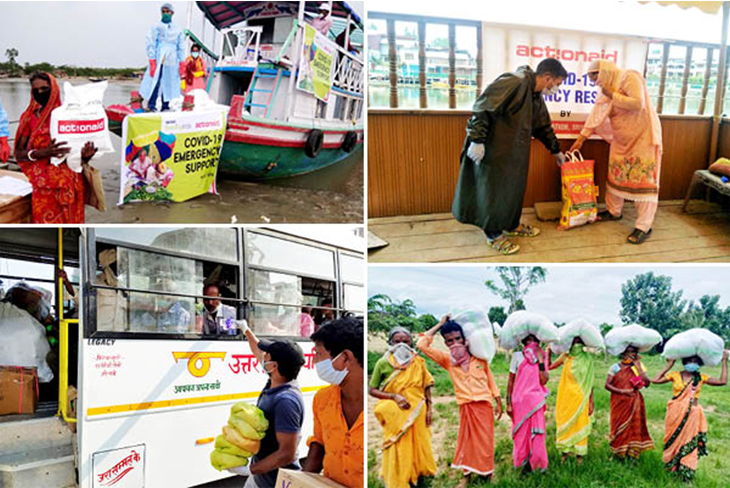Since the COVID-19 pandemic broke out in India in March, leading to a humanitarian crisis, our teams have been on the ground, tirelessly reaching out with support to those most in need. Our response has been at multiple levels. As on August 15, 2020, we have been able to provide and enable much-needed relief materials to 77,12,980 individuals belonging to vulnerable communities and groups across 24 states and one Union Territory. This was accomplished by working with volunteers, community-based organizations, movements, directly and with the help of local administrations. The people we served include those dependent on the informal economy, Dalits, Muslims, particularly vulnerable tribal groups, de-notified tribes, nomadic tribes, people living with HIV and people with disabilities, with a focus on women and children among them. We have directly supported 23,55,346 individuals with relief materials, such as dry ration, cooked food and sanitation supplies, among other forms of relief. We have facilitated access to government relief and schemes for 53,57,634 individuals.
Our teams also provided ‘Relief in Transit’ to migrant workers returning from the cities they were working in to their native villages. We enabled their registration for a safe return home. We ran 51 hubs on highways and roads across 10 states to provide migrants on the road with water, food, footwear and first aid during their journey back home. In some states, we have also been engaged in facilitating and monitoring of quarantine facilities. To identify gaps in the quarantine system and related protocols, we recently carried out a study covering 765 quarantine centres across 14 states. We will bring you the findings of this study through our next edition, and we hope that it would help strengthen the quarantine system and services further.
Besides, we have been providing grounded inputs from the perspective of workers and vulnerable communities to the various policy and programme processes of Union and State Governments. As shared earlier, Sandeep Chachra, our Executive Director, has also been included on an expert committee set up by the National Human Rights Commission (NHRC) to assess the impact of the pandemic on human rights of people, especially the marginalized and vulnerable sections. The committee would suggest a response based on which the NHRC plans to issue necessary advisories to the relevant institutions of the Governments. Our recommendations were put together keeping in mind the multiple vulnerabilities of informal workers amid the COVID-19 context and the immediate as well as long-term support needed by them.

